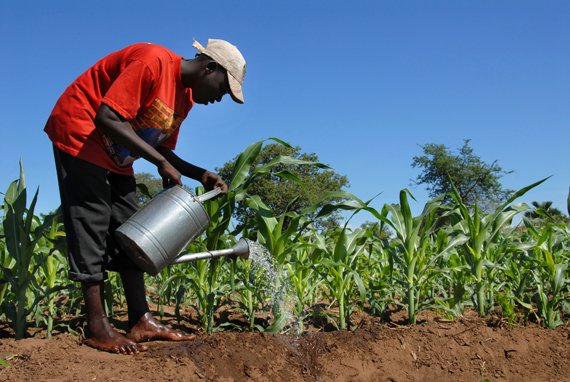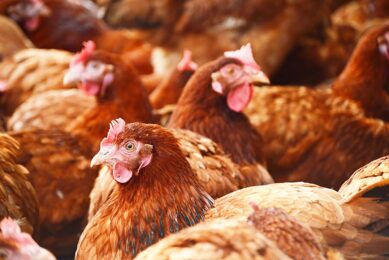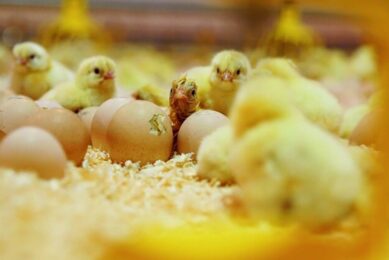Will Africa be the next bread basket?

The most significant challenge is to feed the world in 2050 when the global population is set to reach nine billion. Will Africa be the next bread basket and what is needed to step up agricultural and livestock production on this continent? These are topics discussed at the first ever ‘Africa session’ held at the Alltech annual feed symposium in Lexington, USA.
Africa is often referred to as a continent with great potential. The sunshine, the central part with its green and wet parts and the enormous land space available. But livestock and agricultural production are still far behind Western countries. Aidan Connelly, vice president of Alltech opened the session by addressing the fact that Africa is among the top five continents that are showing the highest economic growth. “But the average income level is still low. If we can step up agriculture, this will give a major boost to the economic growth,” explained Connolly.
Hunger fighters
Julie Borlaug Larson, from the Norman E. Borlaug Institute for International Agriculture and Texas A&M explained that her late grandfather Norman did a lot of work in Africa already. “He always named himself and his team the ‘hunger fighters’. And I think we need a new generation of these ‘hunger fighters’ who use modern and sustainable techniques to improve the agricultural position of Africa,” she explained. But already many things have been achieved in Africa. “Look at the use of mobile phones. There are already 970 million smart phones in Africa and the way people can access information (also farmers) has made a great difference. Plus there are some initiatives that African farmers can insure their crops. This way, farmers can take a little bit more risk, which changes the way they manage the farms”.
China is the biggest investor
Borlaug said how Africa could indeed be the next bread basket, as it has 60% of the worlds arable land. But help from private companies to invest is necessary. “And you don’t have to be an agricyultural company to invest in the agricultural sector. We have a great example were there has been investments in bikes, which changed the way coffee farmers could do their job and hence increased the production and quality of the coffee beans. Investment in Africa is done heavily by China as explained by Wenge Fu from the Chinese Ministry of Agriculture. Fu: “In the last two years, China has invested over 100 billion dollars in Africa. We look for partnerships and don’t want to only profit from this continent. It has to be a win-win situation.” Fu explained why China is interested in Africa. “We have a history together, from a political and economic standpoint. In addition, China has gone through the same situation. We used to be even poorer than Africa. With our experience we feel that we can make a difference in Africa.” China particularly invests in infrastructure. About 70% of the total Chinese investments in Africa goes to roads and railways. In comparison: the USA investst 70% of its Africa budget in healthcare. European countries stay behind in their investments, probably because they think the risks are still too high.
No interest for food dumping
Nick Smit from Alltech explained that Africa has a lot of raw materials. “We need to work with the local human capital to turn these raw materials into valuabel food products. But this requires education and that needs to be better developed. Now we see a lot of food dumping in Africa. Cheap poultry is coming from Europe. Yes, cheap food for Africans is a wonderful thing but the people are losing their jobs because they cannot produce the poultry at the same price. So we have to step away from thinking that Africa want cheap food from Western countries. Let it be produced on the continent and maybe Africa can be the next Brazil in terms of poultry production,” Smit explained.
Is it really that promising?
This all sounds promising. But what can we expect in the next few years and what are the most promising countries in Africa? Evans Darko from AgForte (poultry company) said that Africa should better exploit the sunshine and rainfall. “We can be champions in producing corn.” Charles Moore, consultant in South Africa sees great potential for beef production. “All we need is investments in export quality schemes, a disease free management system in FMD free zones. The risks that the wildlife transfers diseases are large in Africa. But if we can get certain things under control, we can increase production,” Moore said. In terms of feed production, most feed is produced in western Arfrica. The total annual volume produced is 33 million tonnes (of which 11.1 million tonnes in South Africa). The feed production in Africa is increasing every year.The experts at the Africa session named Ghana, Zimbabwe, Nigeria, Ethiopia and Zambia as great examples for development and investments. But there are still many challenges to overcome before we can say that Africa can be a big contributor to the global feed demand. But one of the speakers, Christel Coetzee from Advit Animal Nutrition is positive and concluded the session with the words: “Africa, from hopeless continent to aspiring continent.”
This year’s Alltech symposium attracted more than 2,000 delegates from 60 countries. It was the 30st symposium for Alltech. The Africa session attracted many visitors.
Join 31,000+ subscribers
Subscribe to our newsletter to stay updated about all the need-to-know content in the poultry sector, three times a week. Beheer
Beheer








 WP Admin
WP Admin  Bewerk bericht
Bewerk bericht